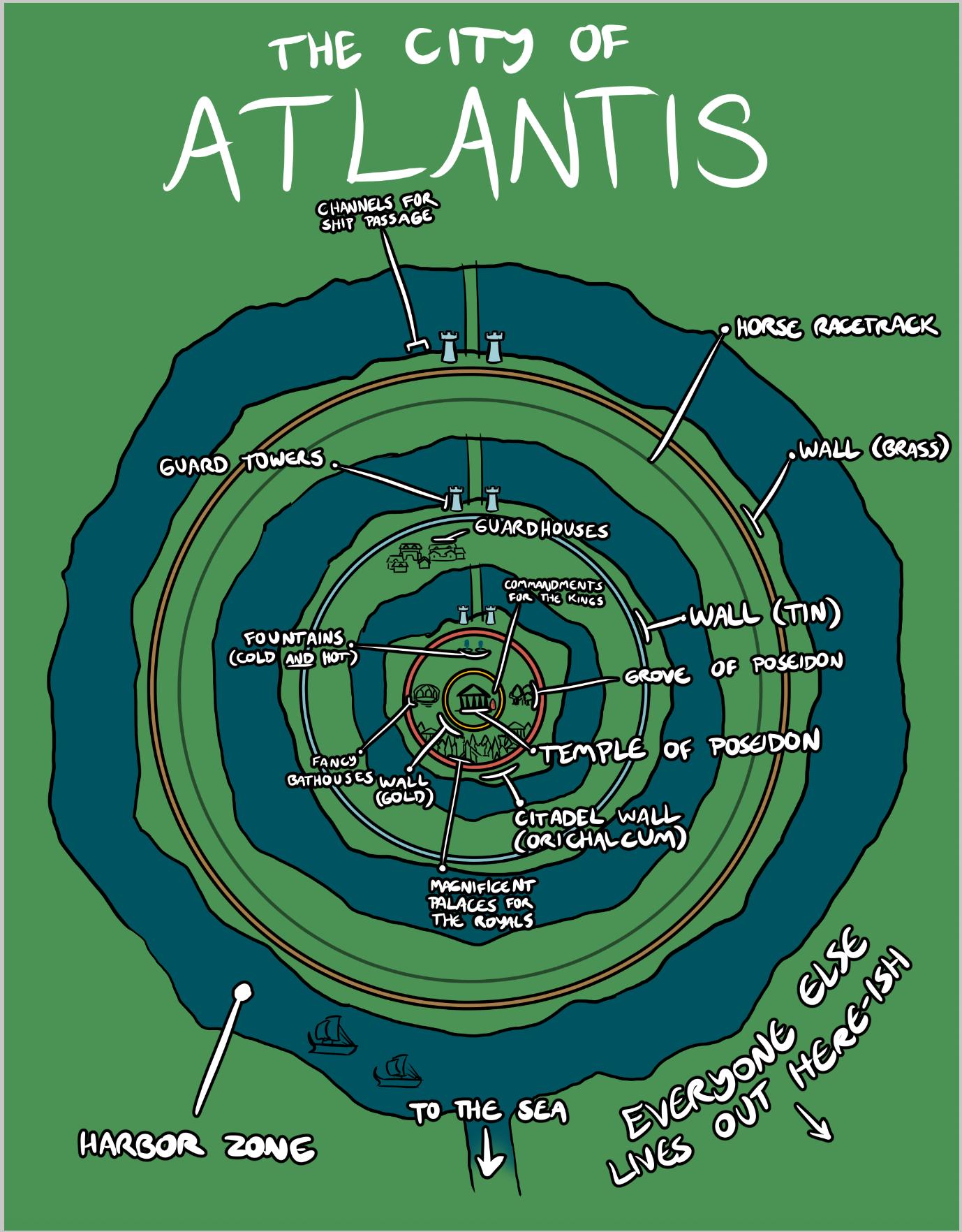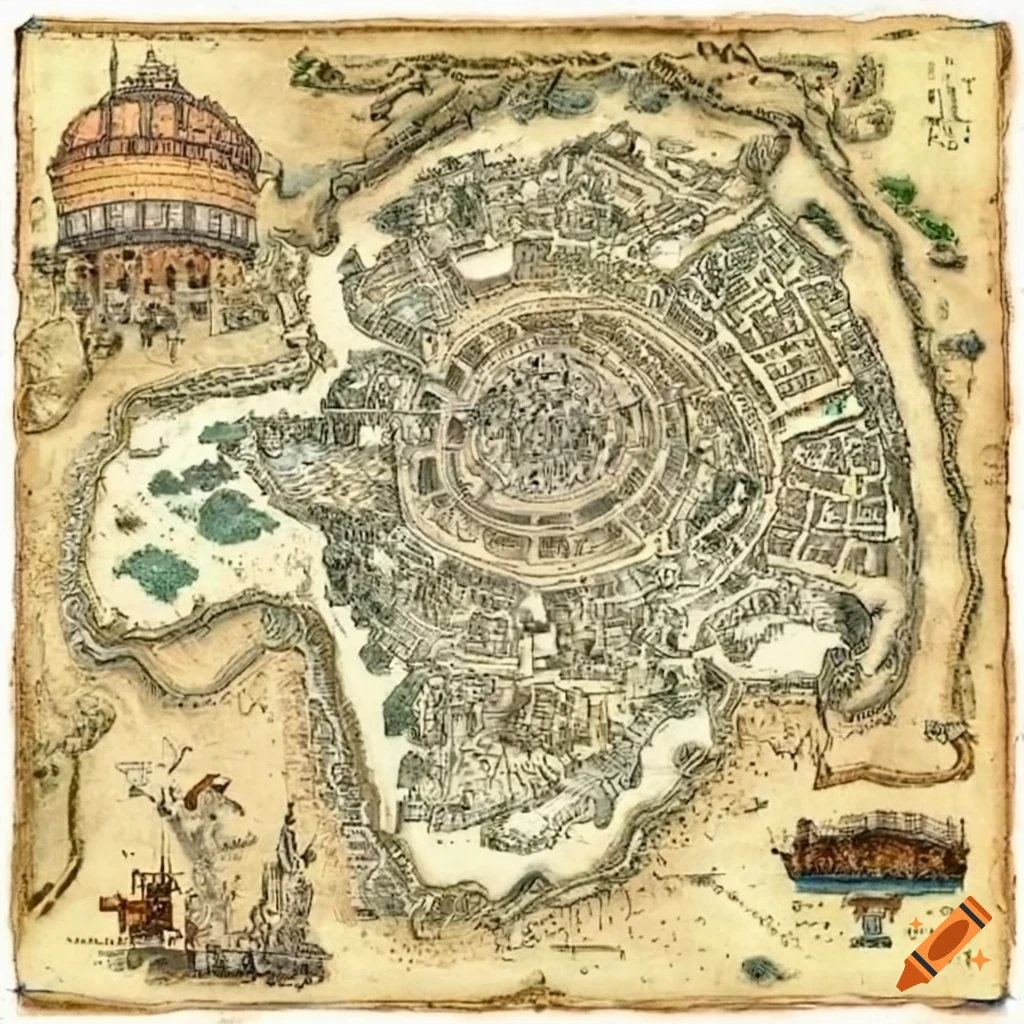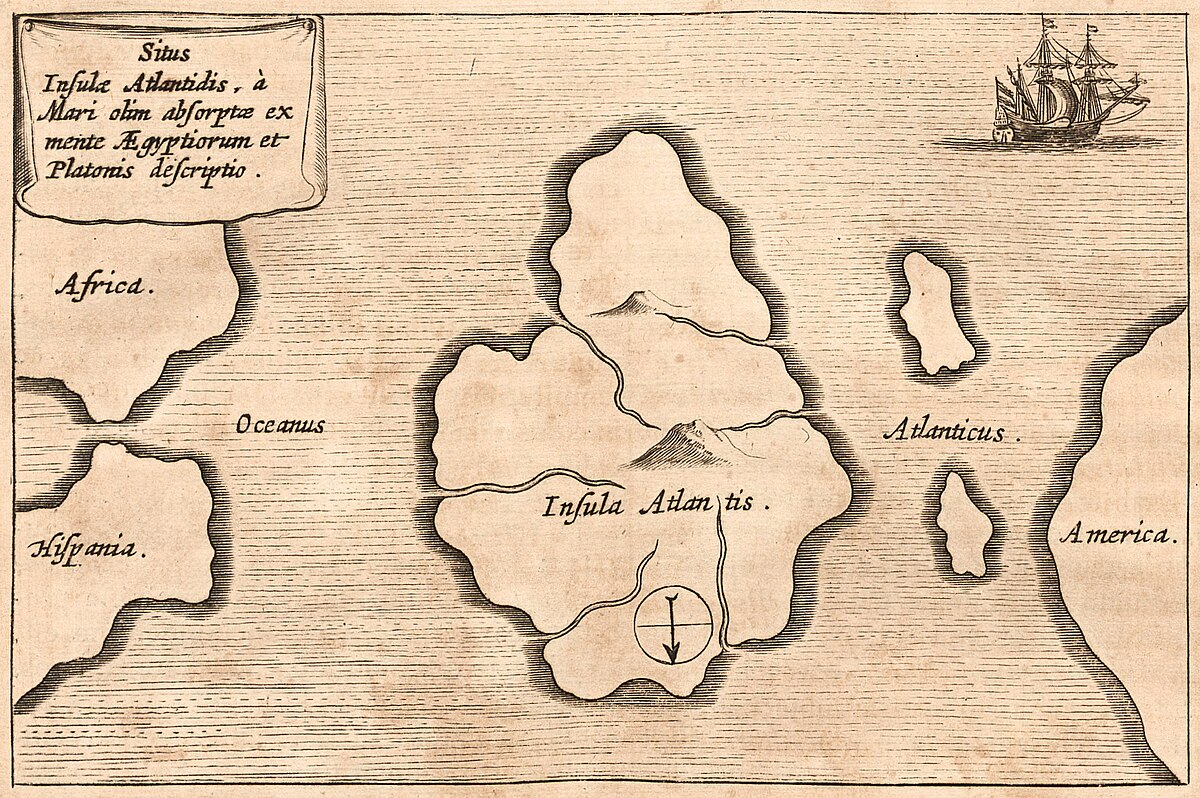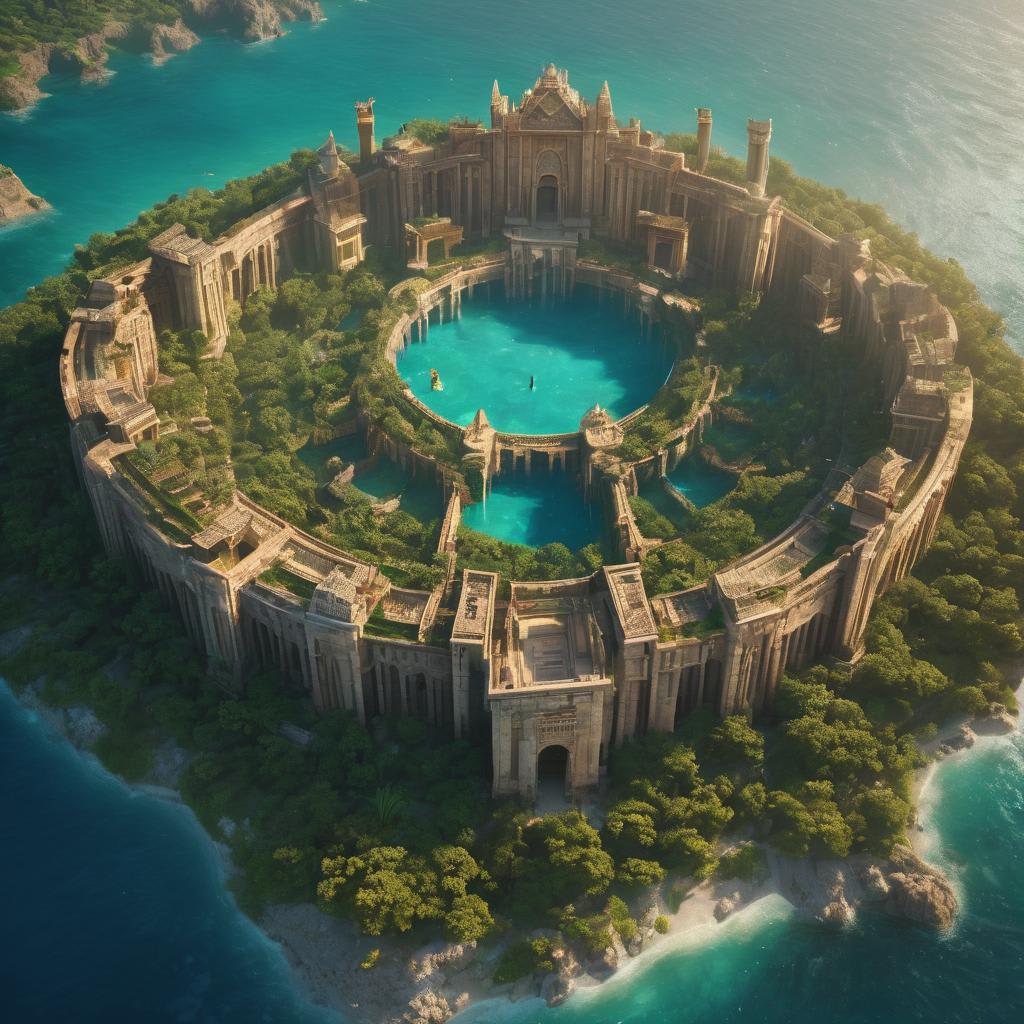Theories for Atlantis
Introduction
The Atlantis legend has captured the imagination of people for centuries, and numerous theories have been proposed regarding its possible existence and location. It's important to note that there is no scientific evidence supporting the existence of Atlantis, and many consider it to be a legendary or mythical place. Nonetheless, various theories have been suggested over the years. Here are a few:
- Plato's Account: The story of Atlantis comes primarily from the ancient Greek philosopher Plato's dialogues "Timaeus" and "Critias." In these dialogues, Plato describes Atlantis as a powerful and advanced civilization that ultimately sank into the ocean. Some theories suggest that Plato's account is based on a real place and event, while others argue that it is an allegory or fictional tale.

- Santorini/Thera Hypothesis: Some researchers propose that the island of Santorini (Thera) in the Aegean Sea is connected to the Atlantis story. The Minoan civilization on Thera was destroyed in a massive volcanic eruption around 1600 BCE, leading some to speculate that this event inspired the Atlantis myth.
- Caribbean or Bimini Hypothesis: Some theories suggest that Atlantis was located in the Caribbean, particularly near the Bahamas or the island of Bimini. Claims of underwater structures, often referred to as the "Bimini Road," have been cited as potential evidence, although mainstream archaeology does not support these claims.

- Antarctica Hypothesis: A more speculative theory suggests that Atlantis was located in Antarctica before it was covered by ice. This theory lacks credible scientific evidence and is generally considered pseudoscientific.
- Mediterranean Hypothesis: Some theories propose that Atlantis was situated in the Mediterranean region, possibly near the Strait of Gibraltar. Proponents of this idea suggest that geological or tectonic events may have caused the disappearance of the civilization.

- Mesoamerican Hypothesis: Some speculative theories propose a connection between Atlantis and ancient Mesoamerican civilizations, such as the Aztecs or Maya. Proponents of this idea suggest that cultural and technological similarities between Atlantis and Mesoamerican societies may indicate a common origin. However, mainstream archaeologists generally do not support this hypothesis, citing the lack of substantial evidence.
- Black Sea Hypothesis: Another theory suggests that the flooding of the Black Sea around 5600 BCE, known as the Black Sea deluge hypothesis, could be linked to the Atlantis story. Proponents argue that the sudden inundation of the Black Sea basin might have inspired the myth, with survivors spreading their knowledge to other cultures. However, this hypothesis faces challenges, and the timing does not align precisely with Plato's account.
- Malta Hypothesis: Some theories propose that the island of Malta in the Mediterranean could be linked to Atlantis. Proponents point to the ancient temples of Malta, such as those at Ħaġar Qim and Mnajdra, as evidence of an advanced civilization. However, mainstream archaeologists attribute these structures to the local Neolithic population and do not consider them evidence of Atlantis.

- Iberian Peninsula Hypothesis: Some researchers suggest that Atlantis might have been located in the region of the Iberian Peninsula, near modern-day Spain and Portugal. Proponents argue that the geography of the area, including the Pillars of Hercules (Strait of Gibraltar), aligns with Plato's descriptions. However, this theory lacks concrete archaeological evidence.
- Extra-Terrestrial Origins: A more unconventional theory proposes that Atlantis had an extraterrestrial origin. Some suggest that ancient astronauts or alien beings established Atlantis as an advanced civilization, and its disappearance was the result of extraterrestrial intervention. This theory is not supported by mainstream scholars and is considered part of speculative and fringe theories.

Atlantis in Modern Art
The legend of Atlantis has inspired many artists throughout modern history, leading to a variety of creative expressions in visual arts. Artists have interpreted Atlantis in different ways, using their imagination to depict the mythical city and its supposed grandeur. Here are some examples of how Atlantis has been portrayed in modern art:
Paintings and Illustrations:
Artists have created numerous paintings and illustrations depicting the imagined landscapes and architecture of Atlantis. These artworks often feature advanced and utopian civilizations, with underwater palaces and advanced technology. The artists may draw inspiration from Plato's descriptions or take creative liberties to envision their own version of the lost city.
Sculptures and Statues:
Some sculptors have taken on the challenge of creating three-dimensional representations of Atlantis or its inhabitants. These sculptures can be found in various materials, from traditional stone to more contemporary mediums. They often showcase the mythical aspects of the city, including its grand buildings and the potential underwater setting.
Digital Art and Concept Art:
With advancements in technology, digital artists and concept designers have created stunning visualizations of Atlantis. These artworks often incorporate elements of science fiction and fantasy, exploring different architectural styles and technological advancements that could be associated with the legendary city.
Comic Books and Graphic Novels:
Atlantis frequently appears in comic books and graphic novels, where artists and writers have the freedom to interpret the myth in unique ways. Some comic book series incorporate Atlantis into superhero stories, while others delve into more historical or fantastical renditions of the lost city.
Film and Animation:
Atlantis has been a popular theme in films and animated productions. One notable example is Disney's animated film "Atlantis: The Lost Empire," which presents a reimagined version of the myth. Filmmakers often use Atlantis as a backdrop for adventure stories, blending elements of mythology with their own creative vision.
Installation Art and Exhibitions:
Some contemporary artists have created installations or participated in exhibitions centered around the theme of Atlantis. These immersive experiences may include multimedia elements, interactive displays, and reinterpretations of the myth to engage viewers in a more participatory manner.
The artistic interpretations of Atlantis in modern art showcase the enduring fascination with the mythical city. Artists use their creativity to bring the legendary tale to life, offering viewers a visual journey into the realms of imagination and speculation.







































